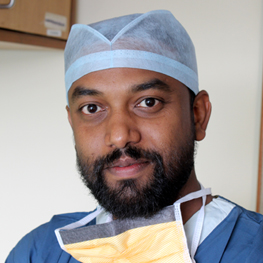Pravin Patole (Transplant Year: 2021)
Treatment : Liver Transplant
Saket Khadakkar (Transplant Year: 2021)
Treatment : Liver Transplant
Pravin Patole (Transplant Year: 2021)
Treatment : Liver Transplant
Saket Khadakkar (Transplant Year: 2021)
Treatment : Liver Transplant
Pravin Patole (Transplant Year: 2021)
Treatment : Liver Transplant
Saket Khadakkar (Transplant Year: 2021)
Treatment : Liver Transplant
Error: Contact form not found.

A kidney transplant is a surgical procedure in which a person’s inadequately functioning kidneys are replaced with a healthy kidney from a living or deceased donor.
A kidney transplant is needed when a kidney no longer functions properly and has end-stage renal disease (ESRD). In such a case, the only option to live is either dialysis or a kidney Transplant. Kidney Transplant is the best treatment option for people with liver failure and can save their lives.
You may think it’s rare. But such procedures happen almost daily. If you or someone you know is eligible for a kidney transplant procedure, this patient’s guide will be irrevocably helpful for you or them because it will cover all the aspects of the transplant.
The symptoms of a potential kidney transplant are not difficult to spot. Some of the most noticeable symptoms to look out for in yourself or a loved one are as follows:
● Swelling of the hands, feet and face (edema)
● Headaches (caused because of high blood pressure)
● Seizures
● Pale skin color (due to low iron)
● Coffee-colored urine
● Chronic bad breath that won’t away even after brushing teeth
● Depression
● Weariness
● Itchy skin
Even after spotting one or many symptoms of kidney failure in yourself or someone else, maintain your composure. Think positively and seek help from the best medical professional that you know. It will be all right.
If we narrow it down, people who have the following conditions will be at high risk of kidney failure and thereby undergoing the kidney transplant procedure:
● Diabetes
● Chronic, and uncontrolled high blood pressure
● Chronic glomerulonephritis — an inflammation and eventual scarring of the tiny filters within the kidneys (glomeruli)
● Polycystic kidney disease
● Hardening of the arteries
● Obesity
● Old age
● Untreated strep infections
● Chronic kidney infections
● Lupus
● Kidney stones
● Long-term use of nonsteroidal anti-inflammatory drugs (NSAIDs) like ibuprofen
All the above conditions equal to a kidney transplant requirement.
Certainly, someone noble and giving. A kidney donor is someone who is extremely willing to save lives. However, there are certain prerequisites necessary to become a living kidney donor. Some of them include being in excellent mental and physical shape, being 18 or older and having normal kidney function.
The physical conditions which would restrict someone from becoming a living kidney donor are having uncontrolled high blood pressure, diabetes, cancer, HIV, hepatitis, or any acute infection.
Bearing a mental health issue will also pose as a hurdle in becoming a kidney donor.
If you or someone you know is perfectly healthy and willing to donate a kidney, no one will be able to say ‘No’ to you in such a scenario. Remember that a living donor can sail through life on one kidney as well. You must also remember that only 1 in 5 people are healthy enough to become living kidney donors. If you do not become eligible, you will be placed on the deceased donors’ list.
In a cadaver donor kidney transplant, a person agrees to have their organs utilized for transplant if they become brain dead due to some reason. A deceased donor’s kidney will always be screened for diseases and not used in the operation if anything unhealthy is encountered.
Once a doctor finalizes that their respective patient requires a kidney transplant, the search and the matching process for a potential donor begins.
A living donor will have to go through three major tests to become a perfect match for a kidney transplant recipient.
1. BLOOD TEST:
First in line, a potential kidney donor’s blood type should match with the recipient’s. For reference, people with blood type O can give blood or an organ to everyone else and people with blood type AB can receive blood or an organ from everyone else.
2. HLA TYPING:
Also known as “tissue typing”, the full form of ‘HLA’ is human leukocyte antigen.
Antigens are proteins on the cells of our body. Out of the total six, we inherit three each from both parents.
Nevertheless, it is astounding to note that kidneys can be transplanted between two people who do NOT have matching antigens.
When antibodies (large, Y-shaped proteins produced by plasma cells, used by the immune system to neutralize pathogens such as bacteria and viruses) are added into the picture and when a recipient has strong antibodies against a donor’s HLA, the risk of rejection will be high and a donor will be declined for that recipient in such a case.
3. CROSSMATCHING:
This test constitutes mixing a dollop of your blood with that of the donor’s blood to see how the antibodies in your body react to the antigens in their blood. A negative cross-match means that the donor is compatible with you. A positive cross-match isn’t favorable but will still allow for a kidney transplant. However, there will be extra care required before and after the transplant to reduce the risk of your antibodies reacting to the new organ.
Your trustful kidney transplant surgeon will make an incision in the lower part of one side of your abdomen and place the new kidney in your body. Then, the blood vessels of your new kidney will be attached to the blood vessels in the lower part of your abdomen, just above one of your legs.
The ureter (the tube that links the new kidney to the bladder) will be connected to your bladder at the end of the operation.
i. SPLIT KIDNEY TRANSPLANT:
In the circumstance of a shortage of organs, this type of kidney transplant proves to be life-saving. While it may require precision and time, a kidney transplant surgeon can ethically and fairly procure a horseshoe kidney that will be compatible with two different recipients at the same time.
ii. SWAP KIDNEY TRANSPLANT:
When donor 1 is incompatible with recipient 1 but compatible with recipient 2 and vice versa. The swap type of liver transplant is more creative in the sense that it will allow the recipients to avoid waiting for a cadaver kidney donor.
iii. PEDIATRIC KIDNEY TRANSPLANT:
Kidney transplant in children is unfortunate and common. The little ones tend to have a different experience of the renal failure from adults as it can hamper with their growth, bone strength and nerves. Not going through with the pediatric kidney transplant may foster learning difficulties in them as well.
iv. ADULT KIDNEY TRANSPLANT:
An adult who has been diagnosed with end-stage kidney failure will require dialysis for the rest of their life. If their doctor thinks they are a suitable candidate, they will be put on a waiting list for a new kidney.
v. ABO INCOMPATIBLE KIDNEY TRANSPLANT:
When the blood type of the donor and recipient do not match. In such a case, a kidney transplant will be possible but will require extra care before and after the kidney transplant to reduce the risk of organ rejection.
It’s important to have a clear picture in mind when opting for dialysis or a kidney transplant as both procedures can be quite exorbitant for some.
For instance, 7-10 dialysis sessions per month cost around RS.25,000 and the kidney transplant cost in India can range from 5-8 Lakh rupees depends on patients sickness at the time of transplant.
This amount covers facets such as pre-surgery evaluation, the surgery itself and the post-surgery facilities. The cost could go up when you hire a caretaker and when you have to move to a different city, look for a house or a PG that is close to the hospital you were operated in.
When choosing a transplant centre after it has been referred to you by your doctor, keep these pointers in mind:
● Number and type of transplants performed annually:
– Expertise level of surgeons, their teams and whether they use any advanced techniques or not
● Survival rates reported by the transplant centre
● Availability of diverse donation programs
● Support groups intended for post-surgery patients
● Inclusion of Transport Charges
● Hospital reputation, infrastructure and technology
● Category and condition of the room you have opted for
●Provision of post-transplant medication
It is understandable that after such an intense and intimidating surgery, you will feel shaken up.
Take baby steps when undergoing care after the transplant surgery. You will feel weaker than usual and your mind will not hesitate to jump to uncertain outcomes.
If you feel anxious and panicky, talk to your kidney transplant physician ( Treating Nephrologist) as they can refer you to a psychologist who will lend you an ear.
If any part of your body aches or feels uncomfortable, the surgeon and their team will be on their toes to remedy that. They will also be keeping a close eye on you to determine how your body reacts and adjusts to your new kidney.
Kidney transplant survival rates
When it comes to deceased donor transplants, there is a success rate of 96% with a life expectancy of 8-12 years.
As for living donor transplants, the kidney transplant survival rate is 97% with 12-15 years of life expectancy.
Your diet will have to be adjusted so that your kidney can function normally. You will have fewer dietary requirements than if you had been receiving dialysis before the surgery.
The nutritionist assigned to you will caution you against gaining weight as some of your medications may increase your appetite. They will also recommend a diet full of fibre and low-salt as well as low-fat foods.
So, consuming fruits (except grapefruit), vegetables, lean meats, fish, water and other hydrating fluids will be acceptable.
To improve your physical and mental health, engage in regular exercise as it will boost your energy levels, increase strength, reduce stress, maintain weight and keep high blood pressure and bad cholesterol away.
Do not lift objects heavier than 10 pounds but work on low-impact strength training. The latter includes walking, bicycling and swimming.
Before you undertake any form of exercise, converse at length with your transplant team.
A liver transplant is an operation that involves the replacement of a patient's diseased liver with either a whole or partial healthy liver from a donor.


Asst Consultant Liver & Multiorgan Transplant

Liver and Multi Organ Transplant

Consultant Liver Transplantation Anaesthesia & Critical Care
[dica_divi_carousel show_items_desktop="1" show_items_tablet="1" advanced_effect="1" arrow_nav_color="#939393" arrow_bg_color="rgba(0,0,0,0)" use_prev_icon="on" prev_icon="%%179%%" use_next_icon="on" next_icon="%%180%%" arrow_font_size="21px" module_id="Docter-slider" _builder_version="4.4.9" title_font="Cabin|600|||||||" title_font_size="17px" subtitle_font="Cabin||||||||" subtitle_font_size="12px" background_enable_color="off" hover_enabled="0" template_type="module" subtitle_line_height="22px"][dica_divi_carouselitem title="Dr. Bipin Vibhute" sub_title="Liver & Multiorgan Transplant Surgeon" button_text="Know More" button_url="https://thelivertransplant.com/dr-bipin-vibhute/" button_url_new_window="1" image="https://thelivertransplant.com/wp-content/uploads/2020/05/Mask-Group-460-1.png" content_padding="7px||10px||false|false" _builder_version="4.4.9" header_font="Circular-Std-Medium|300|||||||" header_text_align="left" header_text_color="#ffffff" header_font_size="18px" subtitle_font="Circular-Std-Medium||||||||" subtitle_text_align="left" subtitle_text_color="#ffffff" subtitle_font_size="16px" background_color="#292C6E" background_enable_color="on" custom_button="on" button_text_size="13px" button_text_color="#ffffff" button_border_color="rgba(0,0,0,0)" button_font="Cabin||||||||" button_use_icon="on" button_icon="%%190%%" button_icon_placement="left" button_on_hover="off" button_alignment="left" hover_enabled="0"][/dica_divi_carouselitem][/dica_divi_carousel]
A liver transplant is an operation that replaces a patient’s diseased liver with a whole or partial healthy operation that replaces.
Dr BIPIN VIBHUTE is one the great liver and multi organ Transplant surgeon we have in India. His smiling face cures patient and gives confidence that they are now in good hands. He takes time to explain things and resolve the problems of all his patients.His team is also very caring and helpful“
Pravin Patole (Transplant Year: 2021)
Treatment : Liver Transplant
Saket Khadakkar (Transplant Year: 2021)
Treatment : Liver Transplant
The biggest donation in this world is Organ Donation, by which we can save multiple lives. To save someone’s life is the biggest thing in this world. Being a donor is like having superpowers. By donating organs you give hope or a chance of living to a person who has left all the hopes of surviving.
Even if a person dies, his organs are not dead. The organs of a dead person will be of no use after the body is burnt or buried. But these organs can save up to eight lives if we donate them. We all understand the importance of Organ Donation, but how many of us support and wish to donate our organs.
Out of the various organs in a human body, the liver performs some of the most important functions. This includes processing the good nutrients and passing it to the...
NASH is a liver condition in which excess liver fat leads to inflammation. This will result in the development of liver scarring that will further lead to cirrhosis and...
Indeed, certain lifestyle choices have a major effect on your body, and that leads to further complications. One of the most common ones includes obesity, which results...
Transplantation is a treatment, not a cure. A kidney is an organ that filters waste from the blood and other fluids, and thereby removes it from the body in the form of...